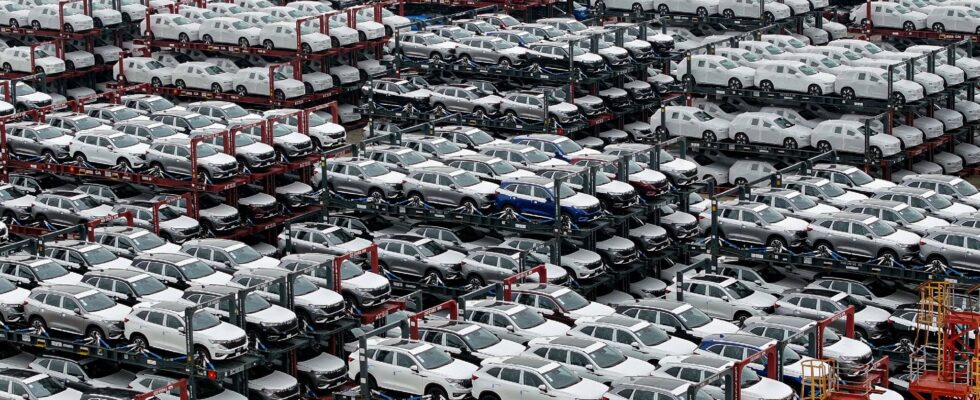The EU imposed on Thursday, July 4, as a precautionary measure, up to 38% additional customs duties on imports of Chinese electric vehicles, before a final decision in November, accusing Beijing of having illegally subsidized its manufacturers. These new “compensatory” duties, which are in addition to the 10% taxes already applied by the European Union to vehicles manufactured in factories in China, will be in force from Friday, July 5. The Chinese Chamber of Commerce in the EU immediately said it “firmly opposes” a “protectionist measure” motivated by “political factors”.
Following an anti-subsidy investigation launched in October, Brussels announced these new duties on June 12, while launching discussions with Beijing to try to resolve the problems and defuse the risks of a trade war. The European executive now has four months to decide on definitive surcharges, which leaves open a window of dialogue with China. The Chinese Chamber of Commerce said it hoped for “a solution as soon as possible” to avoid the definitive validation of these duties. These will have to be approved by the Twenty-Seven, and would be valid for five years.
Brussels is following in the footsteps of the United States, which announced in mid-May an increase in customs duties on Chinese electric vehicles to 100%, compared to 25% previously. Champion of gasoline and diesel engines, the European automobile industry fears seeing its factories disappear if it fails to stem the predicted wave of Chinese electric models. A booming market as the EU will ban the sale of new vehicles with combustion engines in 2035.
Having invested early in batteries, China overtook Japan as the largest car exporter last year. Electric vehicles from China account for nearly 22% of the European market, up from 3% three years ago, according to industry estimates, and Chinese brands have an 8% market share. Brussels says Chinese manufacturers “benefit from unfair subsidies, which pose a threat of economic harm to European producers.”
“Contacts are continuing”
“Consultations with the Chinese government have intensified in recent weeks,” with exchanges between European Commissioner Valdis Dombrovskis and Chinese Commerce Minister Wang Wentao, the Commission explains. “Contacts are continuing at technical level with a view to reaching a solution […] which adequately addresses the EU’s concerns,” she insists.
Brussels will impose surcharges of 17.4% on Chinese manufacturer BYD, 19.9% on Geely and 37.6% on SAIC. Other manufacturers will be subject to an additional average duty of 21% if they cooperated in the investigation, or 37.6% if they did not. These duties, which vary according to the public subsidies received, would only be collected if definitive duties are imposed. If confirmed, the surcharges will be definitively adopted unless a qualified majority of member states (15 countries representing 65% of the European population) opposes them.
According to the German Kiel Institute, these additional duties could reduce imports of electric vehicles from China by 42%, a decrease “largely offset by the increase in sales from European producers and imports from third countries”. However, in the long term, this would have little impact on the prices of electric cars in Europe, it warns, even predicting an average price increase of 0.3 to 0.9%.
“Negative effects”
While France and Spain actively pushed for proportionate measures against Beijing, Germany, on the contrary, very involved in China, fought alongside Sweden and Hungary to avoid sanctions in this case, fearing reprisals. German car manufacturers Audi, BMW, Mercedes and Volkswagen make nearly 40% of their global sales in China. “The negative effects of this decision outweigh the possible advantages,” Volkswagen lamented.
Beijing had already denounced “purely protectionist behavior” by Europe and threatened retaliatory measures. In January, China announced an investigation targeting wine spirits imported from the EU, including cognac. Wine, dairy products, pork and high-powered cars are also in the crosshairs, according to the Chinese state press. This new war of words is part of a broader context of trade tensions between the West and the Asian giant, also accused of destroying competition in other sectors such as wind turbines, solar panels and batteries.
These “compensatory” duties will make it possible to slow down imports of Chinese electric vehicles without blocking them completely, the EU defends itself, claiming to comply with the rules of the World Trade Organization (WTO). Brussels hopes to protect a sector that employs 14.6 million workers in the EU while avoiding a deadly conflict with its second economic partner after the United States.
